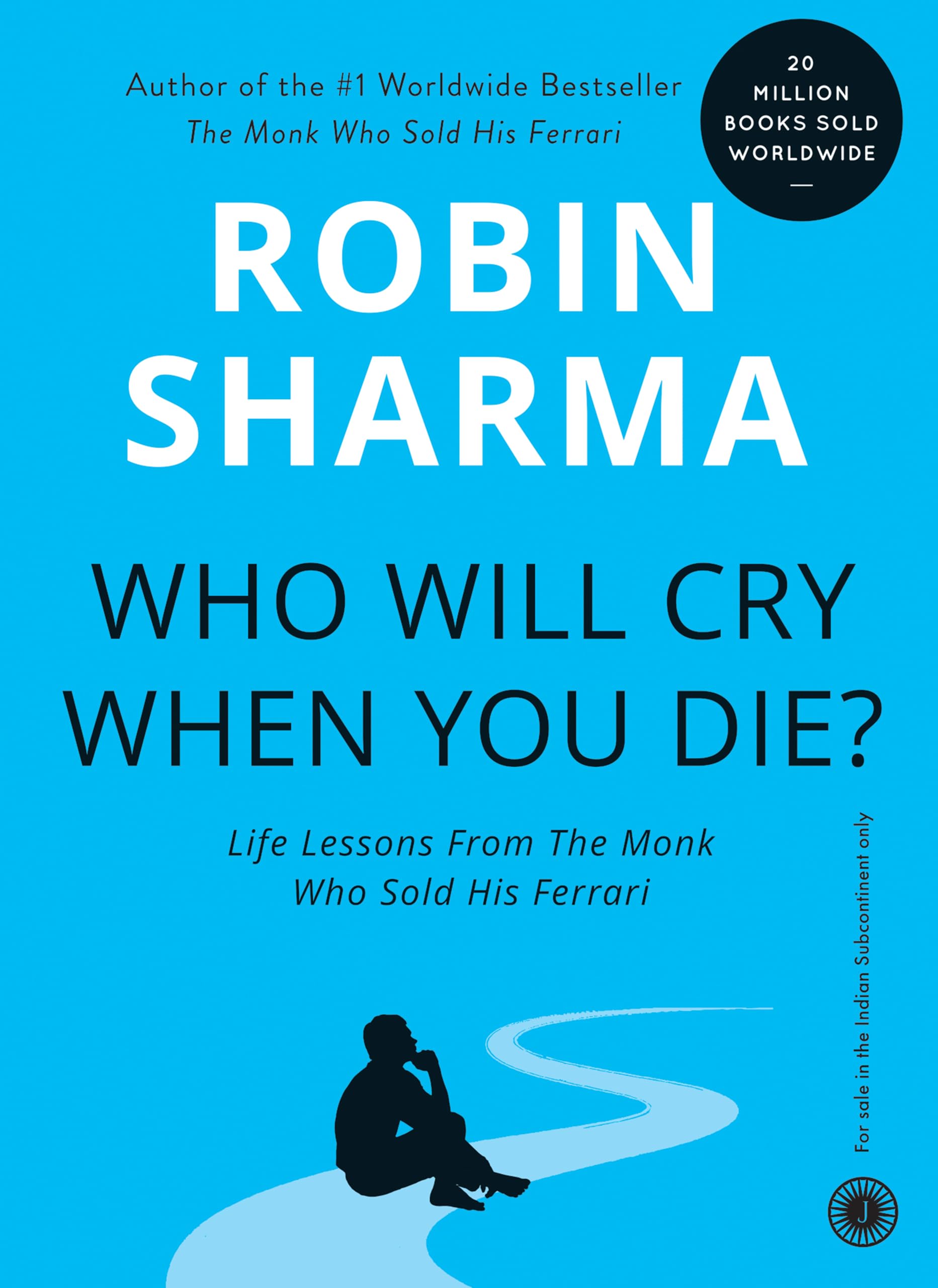Introduction: Who Will Cry When You Die? by Robin Sharma is indeed a fascinating self-help book that encourages readers to introspect and make meaningful changes in their lives. With its collection of 101 accessible life lessons, Sharma invites us to examine
Read More
Introduction: Who Will Cry When You Die? by Robin Sharma is indeed a fascinating self-help book that encourages readers to introspect and make meaningful changes in their lives. With its collection of 101 accessible life lessons, Sharma invites us to examine our priorities and the impact we have on those around us. The format, consisting of concise chapters, makes it easy to digest and implement one lesson at a time, allowing for gradual personal growth without feeling overwhelmed.
This book stands out because of its simplicity and ability to motivate without overwhelming the reader. Each chapter is short and practical, offering advice on how to improve various aspects of life—from cultivating better habits to deepening relationships with others. Rather than focusing on complex theories or abstract concepts, Sharma’s advice is grounded in real-life actions, making it easy for anyone to understand and apply.
For anyone on a journey of self-discovery or looking for a motivational boost, Sharma’s book offers valuable insights and encouragement. It serves as a reminder to live intentionally and authentically, making choices aligned with one’s values and vision for a fulfilling life. Overall, “Who Will Cry When You Die?” is a thoughtful guide that resonates with those seeking to create a more impactful existence.
Summary: Who Will Cry When You Die? Consists of 101 short chapters, each offering insightful advice on how to live a better life. Rather than following a conventional narrative, each chapter provides a unique lesson about life. The thought-provoking title prompts reader to consider a question: Who will cry when you die? This question encourages reflection on the life you lead and the impression you leave on others.
The chapters explore various themes like building good habits, expressing gratitude, prioritizing health, and concentrating on what truly matters. For example, Sharma talks about the importance of slowing down, reflecting on your life, and spending time with the people you love. The book encourages you to think about your legacy and suggests that small, intentional changes can lead to a happier and more meaningful existence.
Writing Style: Robin Sharma’s writing style is Conversational and relatable, making his life lessons feels like advice from a trusted friend. The chapters are short, making it easy to read one at a time without feeling overwhelmed.
Personal Reflection: Reading Who Will Cry When You Die? made me stop and think about how I live my life. The questions posed in the book really encourage self-reflection and prioritizing what truly matters in life. It’s easy to get sidetracked by everyday distractions, so acknowledging the importance of spending time with loved ones and staying true to yourself is a significant insight.
I also liked how easy it was to read. Each chapter felt like a little lesson I could think about throughout the day. The advice wasn’t hard to understand, and it gave me simple ideas on how Practicing gratitude and taking time for reflection are also powerful tools to cultivate happiness and contentment. Overall, it seems like the book has inspired you to make thoughtful choices
that align with your values, which is a wonderful takeaway. Do you have any specific actions in mind that you plan to incorporate into your routine?
Strengths & Weaknesses:
Strengths:
1.Simple and Easy to Read: The book is very accessible. It’s easy to read in short bursts, and the advice is clear and practical.
2.Motivational and Uplifting: The book is both motivational and practical, offering uplifting bits of advice along with actionable tips to implement in daily life.
Weaknesses:
1.Repetitive: Some lessons repeat similar ideas, which might feel a bit boring after a while.
2.Not Deep Enough for Some: This book may feel too simple if you’re looking for more detailed or complex advice.
3.Lacks Specific Steps: While the advice is good, it doesn’t always explain exactly how to make the changes in your life.
Conclusion: Who Will Cry When You Die? by Robin Sharma is indeed a thought-provoking and accessible book that prompts readers to consider the deeper aspects of their lives. Sharma’s straightforward advice serves as a gentle nudge towards personal growth and self-improvement. Many find his tips on cultivating gratitude, kindness, and purpose practical and achievable, making it an excellent resource for anyone seeking to enhance their daily life.
Although some sections may feel unnecessary, the core principles resonate and can inspire lasting change. Overall, if you’re looking for motivation to prioritize what truly matters and lead a more fulfilling life, this book is a worthwhile read. It encourages you to ask important questions about legacy and the impact you have on others, serving as a reminder of the importance of meaningful connections and living with intention.
Show Less

